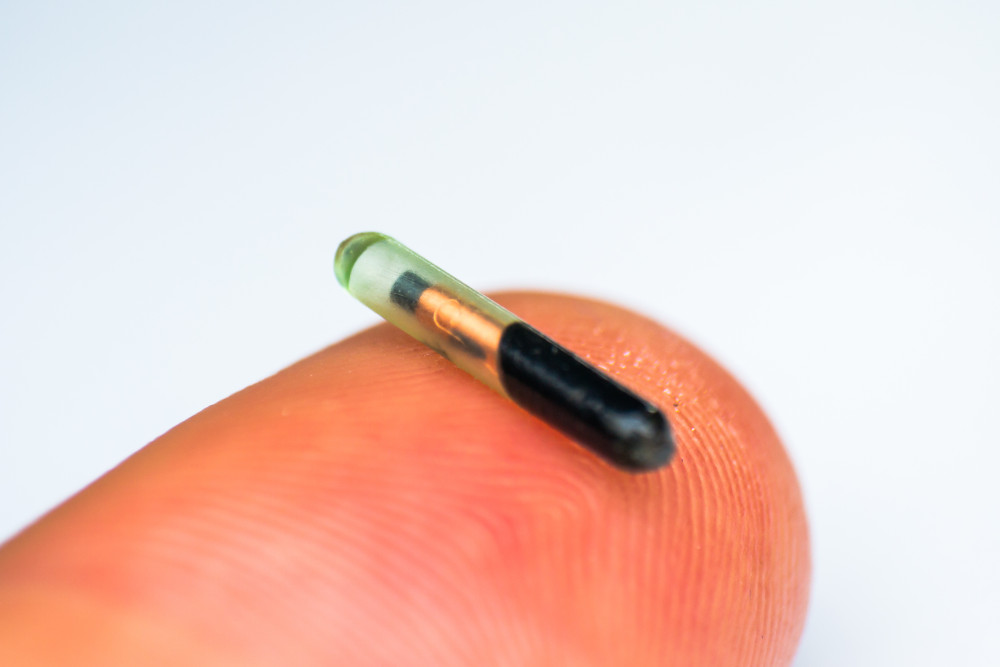Microchip identification is recommended for all companion animals where it is feasible and appropriate for the species.
If your pet is microchipped, the microchip is registered with an appropriate database service on a central microchip database registry and the owner contact details kept up to date, if your pet becomes lost, you are far more likely to be reunited.
Cats and dogs should be microchipped and in some jurisdictions this is mandatory. Some other species kept as companion animals can also be microchipped (e.g., rabbits). If you have a companion animal of a species other than a cat or dog, you should discuss whether microchipping is recommended for that species of companion animal with your veterinarian.
Is microchipping my pet cat or dog compulsory?
In most states and territories microchipping is mandatory for cats and dogs (check with your local authority and see this article for more information).
What is a microchip? How does it work?
A microchip is a permanent method of electronic identification. The chip itself is very small – about the size of a grain of rice – and is implanted with a needle subcutaneously (just under the skin) between the shoulder blades at the back of your pet’s neck.

Each chip has a unique number that is detected using a microchip scanner. The microchip number is recorded on a microchip database registry with details about the animal and owner. Pet owners need to ensure their contact details are recorded on the database against their pet’s microchip number. Should your pet wander or become lost, authorised scanners such as vets, animal shelters and local councils can scan your pet for a microchip and contact you via the database.
It is very important to keep your contact details up to date on the database so that if you move house or change your phone number you will still be contactable in the event of your pet becoming lost/straying.
If a pet is transferred to a new owner, the new owner must ensure their contact details are recorded on the database.
Who do I contact if I need to change my contact details with my pet’s microchip registry database?
To check or change your contact details you need to know the database that lists your pet’s microchip number so that you may contact them directly. Some registries provide Change of Address forms on their websites.
Your pet’s microchip could be registered on one of the seven microchip registries currently active in Australia – five private and two state government:
- Australasian Animal Registry
- Central Animal Records
- Petsafe
- Global Micro
- NSW Government registry – the NSW Companion Animal Registry
- SA Government registry – Dogs and Cats Online (DACO)
To find where your pet’s microchip is registered (if you do not already know), you can start by searching Pet Address using your pet’s microchip number. Pet Address searches the Australasian Animal Registry, Central Animal Records, and PetSafe and, if your pet’s microchip is registered on one of these, it will redirect you to the database that lists your pet’s microchip number so that you may contact them directly.
If you cannot find your pet’s registry by searching on Pet Address, please contact your vet or microchip implanter to find out which database your pet is listed in.
If you are in NSW and cannot find your pet’s registry on Pet Address, try contacting the NSW registry – the NSW Companion Animal Registry.
If you are in SA and cannot find your pet’s registry on Pet Address, try contacting the SA registry – Dogs and Cats Online.
If you have a greyhound and you cannot find their microchip details on any of the above registries or Pet Address, please check the GRV Microchip Registry. as some greyhounds may only be registered on that registry.
All Greyhound Racing Victoria (GRV)-registered greyhounds are microchipped and registered on the GRV Microchip Registry as puppies, and this includes both racing greyhounds in the care of GRV registered participants, and retired greyhounds that have been re-homed into the community. GRV does not subscribe to Pet Address at this time and so, if the microchip number you are looking for belongs to a greyhound, and the number is not listed on any of the Pet Address affiliated microchip registries please check the GRV Microchip Registry.
Is microchipping painful?
Microchipping is a quick (only takes a few seconds), safe, and simple procedure and causes little discomfort. Some small animals may find it more uncomfortable (e.g., puppies and kittens may flinch or yelp as the chip is implanted), but the pain is minimal and short lived. Microchipping is very important for reuniting lost pets with their owners. Should your pet go missing you are far more likely to be reunited if he or she is microchipped. The benefits of microchipping in terms of identifying a lost animal and reuniting them with their owner far outweigh any minimal, momentary discomfort.
When should microchipping be done?
Ideally your pet cat or dog should be microchipped prior to you purchasing or adopting your pet. This is the only way to effectively trace the origin of a cat or dog. However, if your pet is not yet microchipped then we recommend that you make an appointment with your vet to have your pet microchipped (even in those jurisdictions where microchipping is not yet compulsory). Some local councils and animal welfare organisations can also microchip pets.
If you have a companion animal of a species other than a cat or dog, you should discuss whether microchipping is recommended for that species of companion animal and when this can be performed with your veterinarian.
Where can I have my pet microchipped?
Only authorised microchip implanters are permitted to microchip pets. Vets and animal welfare organisations can microchip pets, and there may be other options such as microchipping days organised by local councils.
